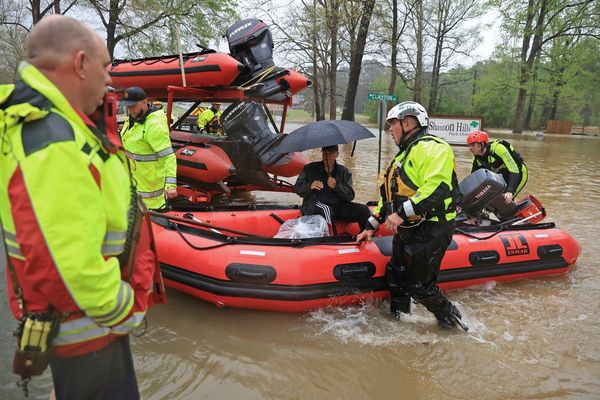
Tens of millions of people in Pakistan are battling the worst monsoon floods in a decade, with countless homes washed away, vital farmland destroyed, and the country's main river threatening to burst its banks. More than 1,000 people have died and the government has declared a state of emergency.
Officials say 1,061 people have died since mid-June when the seasonal rains began.
But the final toll could be higher as hundreds of villages in the mountainous north have been cut off after rivers washed away roads and bridges.
This year's flooding has affected more than 33 million people – one in seven Pakistanis – the National Disaster Management Authority said.
"What we see now is an ocean of water submerging entire districts," Climate Minister Sherry Rehman told AFP Monday.
"This is very far from a normal monsoon – it is climate dystopia at our doorstep".
Extreme floods continue this morning in Malakand division of #Swat, #Pakistan pic.twitter.com/JBPDZDcqmT
— The Intel Consortium (@INTELPSF) August 26, 2022
One of the worst affected areas is the southern Sindh province, home to the ageing colonial-era Sukkur barrage on the Indus River that provides 90 percent of Pakistan's water supply.
The Indus is threatening to burst its banks as torrents of water course downstream from tributaries in the north.
"Our crop spanned over 5,000 acres on which the best quality rice was sown and is eaten by you and us," farmer Khalil Ahmed, 70, told AFP.
"All that is finished."

Landscape of water
Much of Sindh is now an endless landscape of water, hampering a massive military-led relief operation.
"There are no landing strips or approaches available... our pilots find it difficult to land," one senior officer told AFP.
The army's helicopters were also struggling to pluck people to safety in the north, where steep mountains and deep valleys make for treacherous flying conditions.
Many rivers in Khyber Pakhtunkhwa province – which boasts some of Pakistan's best tourist spots –have burst their banks, demolishing scores of buildings including a 150-room hotel that crumbled into a raging torrent.

The government has declared an emergency and appealed for international help, and on Sunday the first aid flights began arriving – from Turkey and the UAE.
President Emmanuel Macron expressed solidarity with Pakistan over the weekend. "France stands ready to provide help," he said on Twitter.
Our thoughts go out to the Pakistani people facing terrible floods, to the families of the countless people missing and to the populations affected. France stands ready to provide help.
— Emmanuel Macron (@EmmanuelMacron) August 27, 2022
Economy in free fall
The flooding could not have come at a worse time for Pakistan, where the economy is in free fall.
The International Monetary Fund executive board was scheduled to meet in Washington later Monday to decide whether to green-light the resumption of a $6 billion loan programme essential for the country to service its foreign debt.
But it is already clear the country will need more to repair and rebuild after this monsoon.

The prices of basic goods – particularly onions, tomatoes and chickpeas – are soaring as vendors bemoan a lack of supplies from the flooded provinces of Sindh and Punjab.
The met office said the country as a whole had received twice the usual monsoon rainfall, but Balochistan and Sindh had more than four times the average of the last three decades.
(with AFP)







